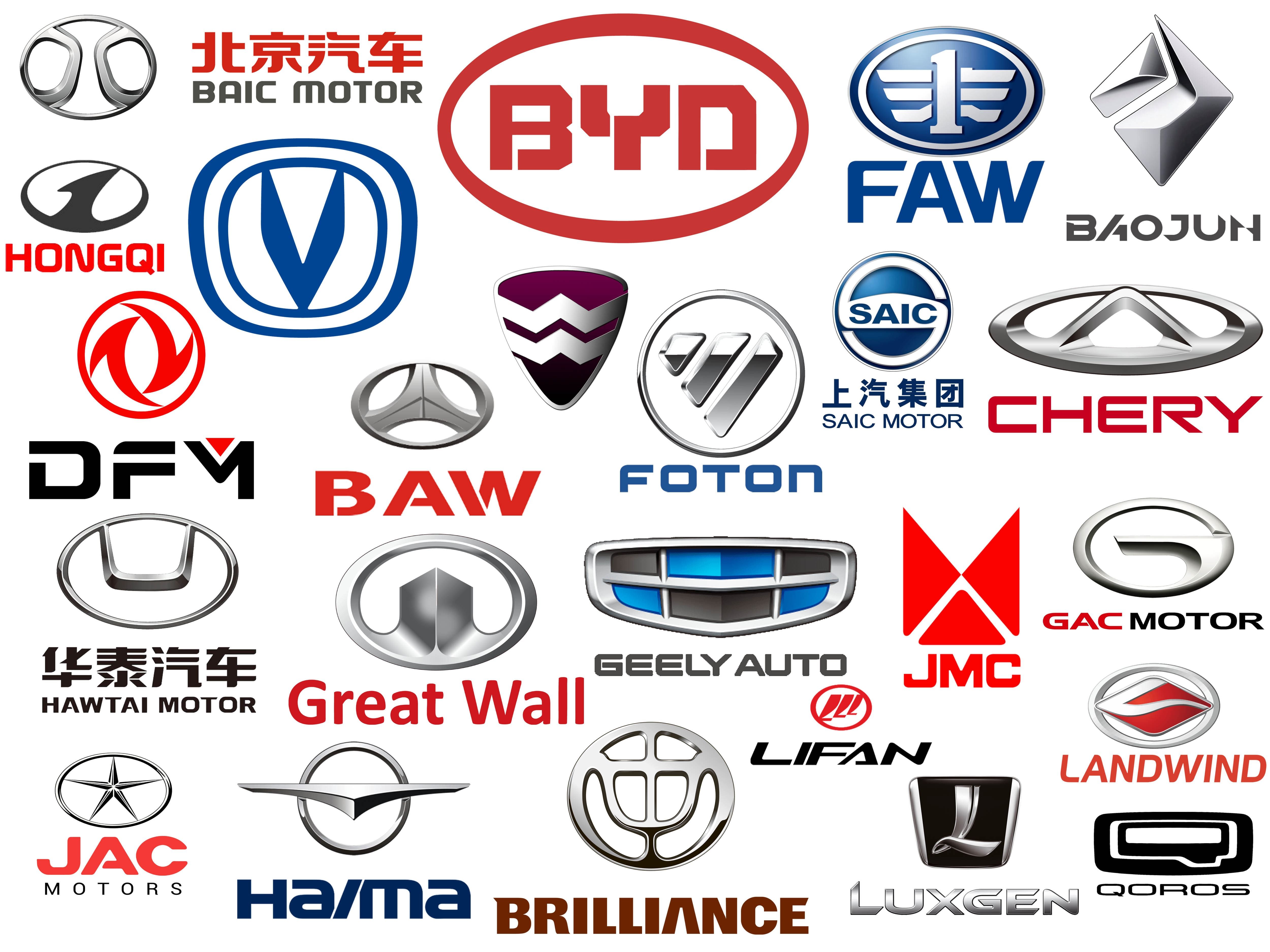China's Automotive Market: Lessons Learned From BMW And Porsche's Experiences

Table of Contents
BMW's Localized Strategy for Success in China
BMW's success in China is a testament to its commitment to localization and understanding the specific needs and preferences of Chinese consumers. Their strategy demonstrates the importance of adapting to local conditions rather than simply exporting existing models and marketing campaigns.
Tailoring Products to Chinese Consumer Preferences
A key aspect of BMW's strategy has been tailoring its products to suit the specific preferences of Chinese consumers. This involves more than just offering different colors or trim levels.
- Long Wheelbase Models: China has a strong chauffeur-driven culture, leading to high demand for vehicles with extended wheelbases offering increased rear passenger legroom. BMW has capitalized on this by offering long-wheelbase versions of popular models like the 5 Series and the X5, significantly boosting their sales in the Chinese market.
- China-Specific Features: BMW invests heavily in research and development to identify and incorporate features specifically desired by Chinese consumers. This includes advanced air quality systems, crucial given concerns about air pollution in many Chinese cities, and other technology features tailored to local preferences.
- Evolving Consumer Demands: Continuous market research and adaptation are essential. BMW actively monitors changing consumer trends to ensure its offerings remain relevant and competitive in this dynamic market. This includes factors like technological advancements, design aesthetics and social trends amongst younger generations of car buyers.
Strategic Partnerships and Local Manufacturing
BMW hasn't attempted to conquer the Chinese automotive market alone. Strategic partnerships and local manufacturing have been critical components of their success.
- Joint Ventures: The Brilliance BMW joint venture is a prime example of a successful collaboration. This partnership has allowed BMW to efficiently produce and distribute vehicles within China, benefiting from local expertise and infrastructure.
- Local Supply Chains: By leveraging local suppliers, BMW reduces costs, improves its responsiveness to market demands, and contributes to the local economy. This approach also helps to build stronger relationships with local businesses and stakeholders.
- Dealership Network: A robust and well-managed dealership network is crucial for sales and after-sales service. BMW has invested significantly in developing a strong network of dealerships across China, ensuring convenient access for consumers.
Effective Digital Marketing and Brand Building
In today's digital age, effective marketing is essential for reaching consumers in China. BMW has mastered this aspect, utilizing popular social media platforms and targeted advertising campaigns.
- Social Media Engagement: BMW actively engages with Chinese consumers on platforms like WeChat and Weibo, sharing relevant content, responding to queries and building brand loyalty through interactive campaigns.
- Targeted Advertising: Precisely targeting specific demographics with tailored advertising messages maximizes impact and efficiency, delivering the right message to the right audience at the right time.
- Brand Loyalty: Building strong brand recognition and customer loyalty is a long-term goal, requiring sustained effort and consistent high-quality customer service.
Porsche's Focus on Exclusivity and Brand Heritage in China
Unlike BMW's strategy of broad market penetration, Porsche has focused on maintaining its brand exclusivity and heritage in the Chinese market.
Maintaining Brand Prestige and Exclusivity
Porsche's success in China is a testament to the enduring appeal of its luxury brand image.
- High-End Models and Limited Editions: Porsche continues to emphasize its high-end models, occasionally releasing limited-edition vehicles to enhance their exclusivity and desirability, thereby attracting affluent consumers.
- Selective Dealership Networks: A carefully curated network of dealerships helps maintain a premium image, ensuring a consistent high level of customer service and experience across all locations.
- Personalized Customer Service: Porsche places significant importance on personalized customer service, creating a bespoke experience that enhances the premium brand perception.
Adapting to the Growing Demand for Electric Vehicles (EVs)
The Chinese government's push for electric vehicle adoption has presented both a challenge and an opportunity for Porsche.
- Investment in EV Technology: Porsche has invested heavily in developing electric vehicle technology, recognizing the importance of this sector in the Chinese market.
- Electric and Hybrid Models: The launch of models like the Taycan demonstrates Porsche’s commitment to offering electric and hybrid vehicles tailored to Chinese consumer preferences.
- Government Regulations: Meeting the stringent regulations around EV adoption in China is crucial for maintaining market access and competitiveness.
Leveraging Experiential Marketing to Build Brand Loyalty
Porsche has excelled in creating memorable brand experiences for its Chinese customers.
- Exclusive Events and Driving Experiences: Porsche organizes exclusive events and driving experiences, allowing potential customers to immerse themselves in the brand's heritage and performance.
- Immersive Brand Experiences: Porsche creates immersive brand experiences that go beyond simply selling cars, fostering a strong emotional connection with the brand and its history.
- Influencer Marketing: Collaborating with influential figures and celebrities is a common strategy to reach and engage with target audiences. Porsche utilizes this approach effectively in China.
Key Takeaways and Comparative Analysis
Both BMW and Porsche have demonstrated successful strategies in China, though their approaches differ significantly.
- Localization vs. Exclusivity: BMW's success highlights the effectiveness of localization, tailoring products and marketing to local preferences. Porsche's success underscores the power of preserving brand exclusivity and heritage in a highly competitive market.
- Adapting to Technological Shifts: Both companies have shown the necessity of adapting to the rapidly evolving technological landscape, particularly the growing demand for electric vehicles.
- Understanding Local Culture: A deep understanding of Chinese culture, consumer preferences, and business practices is critical for success in this dynamic market.
Conclusion
Successfully navigating China's automotive market requires a nuanced strategy that combines both localization and brand preservation. BMW and Porsche's experiences offer valuable insights into effective approaches. By analyzing their successes and challenges, international automakers can better position themselves to capitalize on the immense potential of China's automotive market. Learn from these automotive giants and develop your own successful strategy for China’s automotive market. Understanding the unique characteristics of China’s automotive market is paramount for future success.

Featured Posts
-
 Investing In The Future The Growing Influence Of Chinese Auto Manufacturers
Apr 26, 2025
Investing In The Future The Growing Influence Of Chinese Auto Manufacturers
Apr 26, 2025 -
 Nintendo Switch 2 My Game Stop Preorder Journey
Apr 26, 2025
Nintendo Switch 2 My Game Stop Preorder Journey
Apr 26, 2025 -
 Significant Impact Of Us Port Fee Hikes Auto Carrier Estimates 70 Million Loss
Apr 26, 2025
Significant Impact Of Us Port Fee Hikes Auto Carrier Estimates 70 Million Loss
Apr 26, 2025 -
 California Surpasses Japan As Worlds Fourth Largest Economy
Apr 26, 2025
California Surpasses Japan As Worlds Fourth Largest Economy
Apr 26, 2025 -
 La Fire Aftermath Price Gouging Concerns Raised By Selling Sunsets Stars Name
Apr 26, 2025
La Fire Aftermath Price Gouging Concerns Raised By Selling Sunsets Stars Name
Apr 26, 2025
